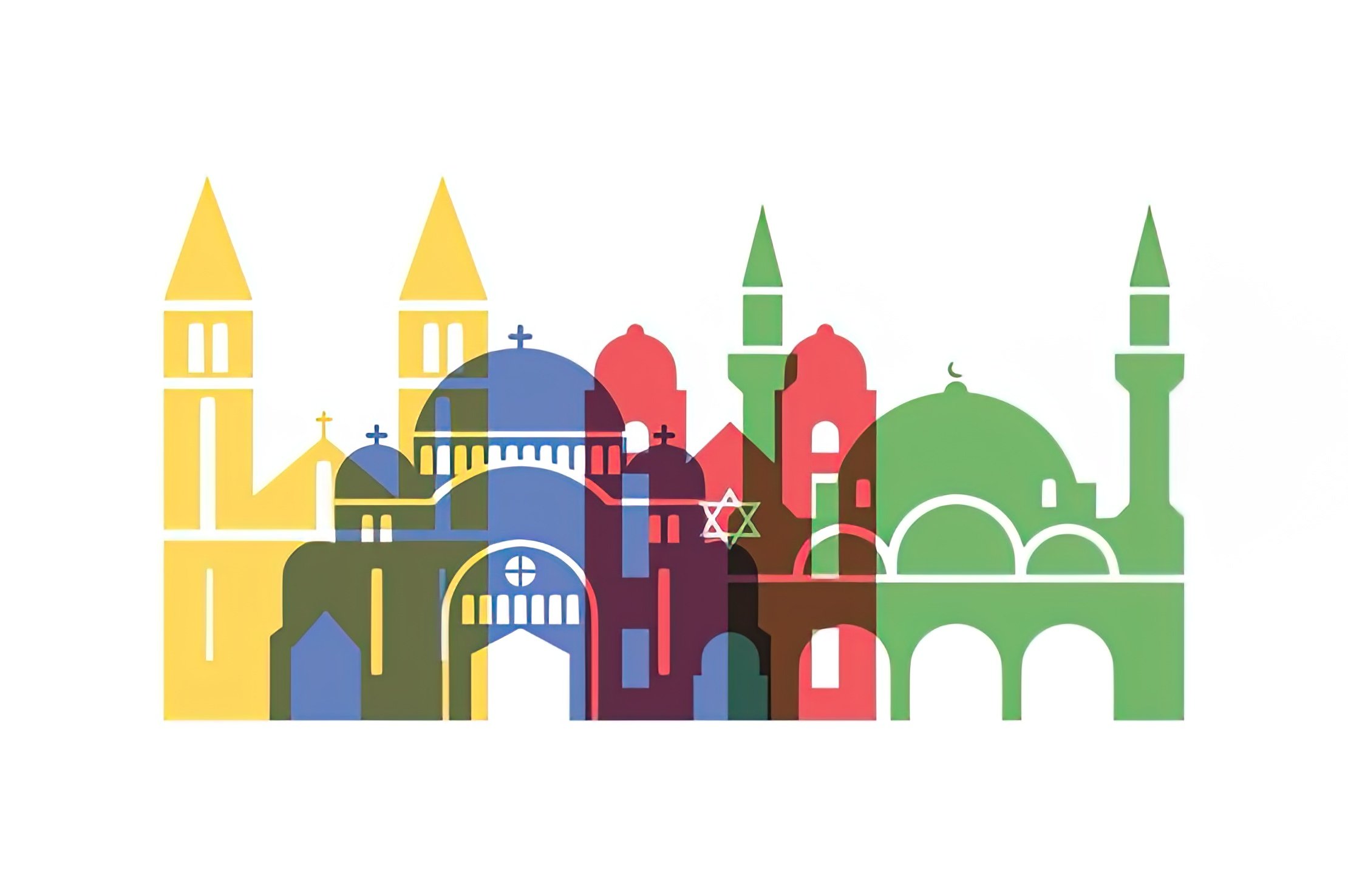
THE INTERRELIGIOUS COUNCIL IN BOSNIA AND HERZEGOVINA
Author: Ekrem Tucaković, PhD, Riyasat of the Islamic Community in Bosnia and Herzegovina • Illustration: The Interreligious Council in Bosnia and Herzegovina logo

The Interreligious Council in Bosnia and Herzegovina was founded in 1997, thanks to the joint efforts by Raisu-l-ulama of the Islamic Community in Bosnia and Herzegovina Mustafa Cerić, PhD, Metropolitan Nikolaj of Dabro-Bosnia on behalf of the Serbian Orthodox Church, Archbishop of Vrhbosna Cardinal Vinko Puljić on behalf of the Catholic Church, and Jakob Finci, the President of the Jewish Community of Bosnia and Herzegovina. The Council was formed a year and a half after the end of aggression on Bosnia and Herzegovina and horrible destructions, murders, people persecution and genocide over Bosniaks.
By the form and beginning of its activity in Bosnia and Herzegovina, the Interreligious Council was the first of the kind in the world. The basic guiding idea of the formation of the Council was a contribution to understanding and trust between nations. It pointed out that its mission is to promote peace, appreciation and coexistence through interreligious dialogue and cooperation, with respecting differences and highlighting common values of religious and spiritual traditions in Bosnia and Herzegovina. Indeed, all the traditional religious communities and churches point out that dignity and value of the man are a God's gift, and each calls for tolerance, appreciating differences and respecting the fundamental human rights of every person. Religious traditions in Bosnia and Herzegovina have a lot of common values, which can serve as a credible basis for mutual respect, cooperation and free life together in Bosnia and Herzegovina.
The Interreligious Council has initiated and implemented many projects of interreligious character, worked on building reconciliation and a civil society through interreligious dialogue. During its field work and encounters with actual challenges, it gained many useful experiences and initiated constructive activities. The Council works as a Bosnian non-governmental organization, as a body which reveals a good will of traditional churches and religious communities to join forces in contributing to the building of civil society, in the segments where the influence of churches and religious communities is important and present.
The Interreligious Council in Bosnia and Herzegovina has its organizational structure and organs, which consist of: Assembly, Executive Board, Secretariat and Board for Interreligious Cooperation.
The Assembly of the Interreligious Council is the highest body, which consists of: high-ranking religious representatives of the Islamic Community in Bosnia and Herzegovina, Serbian Orthodox Church, Catholic Church and the Jewish Community. Presiding over the Council Assembly is carried out by rotation of representatives of the churches and religious communities, and the President's term of office is a year. The Council Assembly makes decisions by consensus.
The Executive Board consists of four members, appointed by religious representatives of the Council Assembly. The Executive Board meets every month and decides upon administrative and project activities of the Council.
The Secretariat is composed of four professionally engaged persons appointed by the churches and religious communities to perform professional tasks, write, implement and coordinate projects of the Council.
The Interreligious Council has formed a network of boards for interreligious cooperation in various cities of Bosnia and Herzegovina. These boards gather religious officials whose activity is focused on promoting respect, solving different problems in the local communities they work in and organizing various activities.
Source:
Website of the Interreligious Council www.mrv.ba

